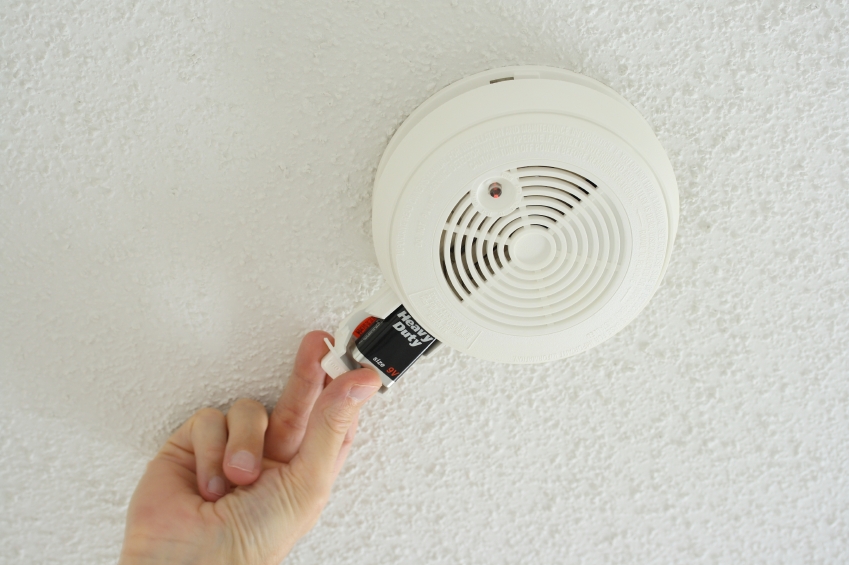Check Your Smoke Detector: Five Minutes Can Save Lives
A smoke detector can save lives. According to the National Fire Protection Association (NFPA), “smoke alarms cut the risk of dying in a fire by half.” On top of that statistic, the NFPA also reported that from 2003 to 2006, two-thirds of home fire deaths occurred where there was either no smoke alarm or the alarm didn’t work.
This alarming statistic – no pun intended – illustrates an obvious fact: a non-working smoke alarm is as useful as no smoke alarm at all. Do family, your neighbors, and yourself a favor and perform regular tests to make sure your smoke alarm is up to snuff. It’s a fairly simple process, and it only takes five minutes – about the amount of time it takes to cook a TV dinner in the microwave.
There are two types of smoke alarms: battery-powered and AC-powered. Battery-operated alarms are cheap but require frequent inspection. AC or line current alarms are directly wired into an electricity source and last longer. They will still need a back-up battery in case your house loses power.
Smoke Alarm Performance
All smoke alarms come with a test button that you press to make sure the battery is working properly. Once a month, get a chair or stool and put it underneath the smoke alarm so you can reach the ceiling. If you’re still too short to reach it, use a broom handle, coat hanger or a something pointy to push the test button on the alarm. Once it is pressed, it should sound loudly. If it doesn’t, your battery is dead and needs to be replaced. After you’ve replaced the battery, if you still don’t hear anything when you press the button you will need to replace your smoke detector.
Some smoke alarms will chirp to warn you when the battery power is low, but it is better not to rely on this. Just as waiting until your gas gauge registers “low” before you fill the tank, you may be caught short. What happens if the battery is dead and a fire starts in the house? A good rule of thumb is to routinely replace your smoke alarm’s battery twice a year in the spring and in the fall.
Keep in mind that the test button only indicates whether or not the battery is working, but it won’t tell you if the smoke alarm is unable to detect smoke. If you’re not interested in starting a small fire in your living room to check whether the alarm works, there is a simpler and safer option. Take two or three matches, light them, blow them out, and hold them directly underneath the alarm so that the residual smoke can waft by. If the alarm goes off, you know it works. If it doesn’t, get a new one that does.
One final note: over time, smoke alarms build up dirt and other pollutants that affect the way they function. As a general rule, you should replace your alarm unit every ten years.




